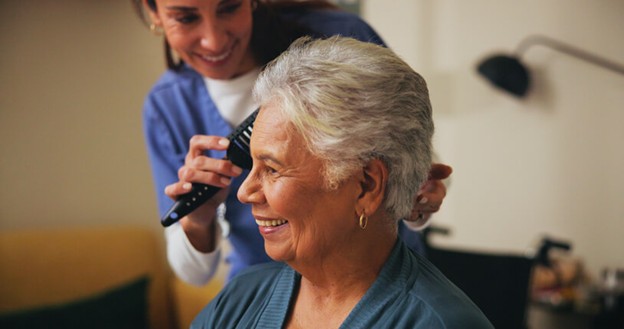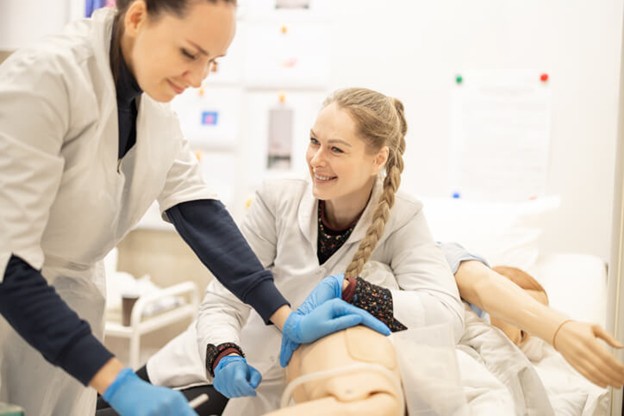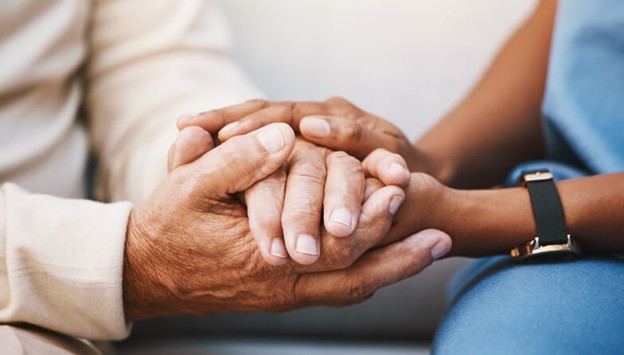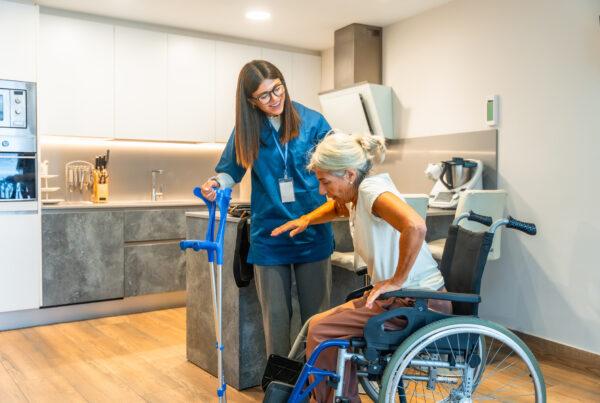
Caring for seniors is about more than helping with daily routines; it’s about providing respect, dignity, and emotional support during one of life’s most vulnerable stages. As a health care aide training graduate, you become a lifeline for the individuals you serve, offering companionship and confidence when it matters most.
Whether you’re just starting your journey or currently enrolled in a health care aide diploma program, understanding your role in elder care support goes beyond textbooks. It’s about human connection, compassion, and being fully present for every moment.
Here’s how your training prepares you for that responsibility, and why your role is so deeply valued in the healthcare system.
Understanding the True Role of a Health Care Aide
Health care aides play a critical role in helping seniors maintain their independence and quality of life. You might assist with mobility, hygiene, meals, or medication reminders, but it’s how you do it that makes all the difference.
Your ability to listen, observe, and respond with care can uplift someone’s day and ease their discomfort. While nurses and doctors focus on diagnosis and treatment, health care aides focus on the daily experience of the patient. That kind of support builds trust and reassurance, especially for seniors dealing with illness, aging, or isolation.

Through health care aide training, you gain not only the technical skills
Building Dignified Care Through Proper Health Care Aide Training
Through health care aide training, you gain not only the technical skills required for patient care but also the interpersonal tools to treat every client with dignity. Training programs emphasize safe transfer techniques, infection control, proper nutrition, and personal care procedures.
But they also dive deep into soft skills, like how to maintain professional boundaries while still being warm, how to communicate respectfully with someone experiencing cognitive decline, and how to create moments of joy even on tough days.
At Academy of Learning Career College (AOLCC), the health care aide diploma program combines classroom learning with hands-on practicum experience so that students are truly prepared to provide well-rounded, dignified care.
Supporting Seniors With Empathy and Purpose
Every senior you care for has a story, a life full of experiences, and a desire to be treated with the same dignity they’ve always had. One of the most important parts of your job is recognizing the person beyond the patient.
That might mean helping someone style their hair the way they always have, ensuring their favourite mug is clean for tea, or simply sitting with them during moments of anxiety. These seemingly small actions are powerful reminders that their preferences, memories, and identities still matter.
You reach that moment when your client smiles not because of what you did, but because of how you made them feel seen, heard, and respected. That’s when you know you’re making a real difference.

Elder care support is a commitment to nurturing lives
The Impact of Dignified Support in Long-Term Care
In long-term care facilities, retirement homes, or even private residences, health care aides are on the frontlines of emotional care. Your presence helps prevent loneliness, reduce anxiety, and improve mental health outcomes for seniors.
And your support doesn’t end with the client; it also brings relief and peace of mind to families, knowing their loved ones are being cared for with professionalism and compassion. That’s why elder care support isn’t just a job, it’s a commitment to nurturing lives.
There will always be a demand for skilled, kind, and capable health care aides, especially as Canada’s senior population grows. With the right health care aide training, you’ll enter the workforce ready to provide essential care that touches lives every single day.
Ready to make a difference in the lives of seniors?
Your career awaits!





